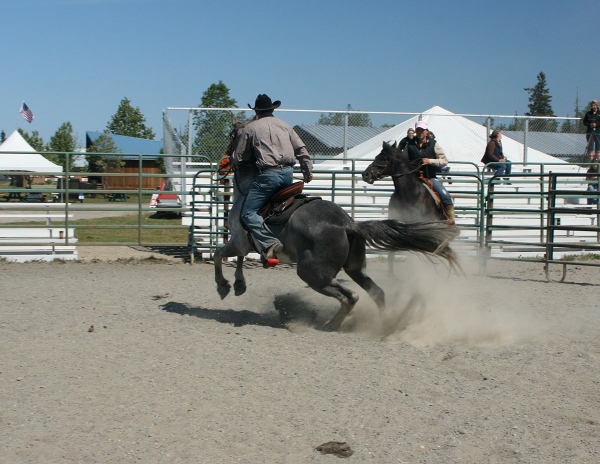Know the Signs of a Fearful Horse
By Elise Dopson
Why do horses bolt?

If you’ve ever experienced a horse bolting – whether you were riding or watching – it can be a terrifying experience for both you and the horse.
Horses run away at speed from a situation where they sense a threat. Horses enjoy feeling safe and comfortable but also like to play. When things go awry, they start to panic.
If your horse has bolted and you’d like to know why it happens, read on to discover more.
How to recognize horse body language
So how do you tell if your horse is about to bolt? A chain of begins to happen.
One thing you may notice your horse do is raise his head and start to straighten up or appear very stiff. This literally happens in a matter of seconds before the adrenaline kicks in and then… he’s off. This can happen quickly and with very little other warning.
If this happens when a rider is in the saddle, they can become completely unseated. It’s vital that the rider tries to remain in the saddle as dismounting at high speed is incredibly dangerous.
What makes a horse bolt?
A strange object or an unfamiliar noise can be very frightening and may result in a bolting horse. Spooking, which is when the horse becomes scared, is a natural fight-or-flight response to the perceived threat.
Sometimes the horse may not be used to a new rider or the way they are being instructed. Similarly, horses who have been raced may be used to bolting out of a starting gate, so it would be natural for them to gallop away.
Horses can bolt because they are in pain or feel stressed. It may be that they have been girthed too tight or something is pinching them – such as a stirrup or uncomfortable saddle.
What to do if your horse bolts
There a few things you can do if your horse starts to bolt – especially if you are riding at the time – but the main thing is to keep calm and give slow, reassuring instructions to your horse.
One good way to get the horse to wind down is to steer him into a large circle as he will eventually tire and slow down.
Exerting pressure on one rein will also help by disrupting the bolting horse’s momentum. Riding your horse towards a steep hill will also slow the horse down.
You should remember that while you may feel panicked, your horse is extremely frightened. Try to keep their head up and don’t allow your riding position to fall forward.
Hopefully, you have learned a few ways to handle a bolting horse and understand more about why they do this. Remember, that if you can spot the signs before the horse bolts you may be able to dismount safely before they set off, or even manage to calm them down so that they don’t spook in the first place.
Horse insurance is a worthwhile purchase as it protects your horse but did you know, you can also get rider insurance to cover yourself in the event of an accident?

News from the horse industry. Sharing today’s information as it happens. The Colorado Horse Source is not responsible for the content of 3rd party submissions.

